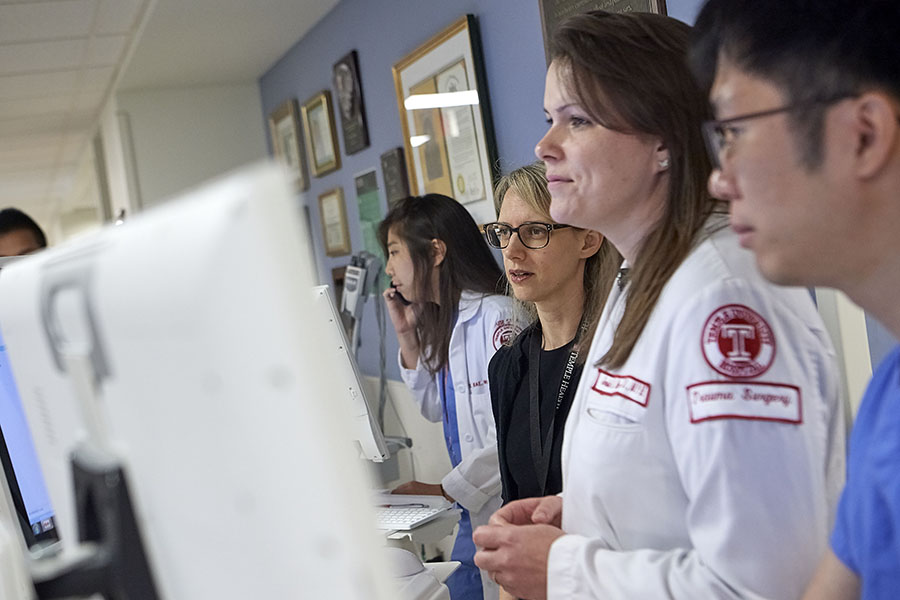While the COVID-19 pandemic brought most of the country to a standstill in March 2020, Philadelphia trauma surgeons noticed an alarming trend in the incidence of firearm violence. Instead of decreasing with containment measures, firearm-injured patients were presenting at even higher rates to Temple University Hospital and other trauma centers around the city.
measures, firearm-injured patients were presenting at even higher rates to Temple University Hospital and other trauma centers around the city.
A team led by Jessica H. Beard, MD, MPH, FACS, Assistant Professor of Surgery and Director of Trauma Research at the Lewis Katz School of Medicine at Temple University (LKSOM), sought to determine the magnitude of Philadelphia’s increase in firearm violence during the COVID-19 pandemic. They also aimed to understand potential causes of the increase by trying to pinpoint when the increase occurred. They hypothesized that two major events of 2020 could explain the increase in firearm violence in Philadelphia: the enactment of public health policies designed to contain COVID-19 and a national reckoning with systemic racism, including widespread protests sparked by the police killing of George Floyd.
In a new research letter published in JAMA, Dr. Beard and her team used the Philadelphia Police registry data of shooting victims from January 1, 2016 through November 26, 2020 to determine when the spike in firearm violence began. They examined changes in the number of individuals shot per week in the city following the enactment of Philadelphia’s first COVID-19 containment policy (closure of non-essential businesses) on March 16, 2020, and following the killing of George Floyd on May 25, 2020.
The team found that there were 7,159 individuals shot in the city overall during the 256 weeks included in the study. Prior to Philadelphia’s first COVID-19 containment policy, there was an average of 25 individuals shot per week. In the weeks after that policy was put in place on March 16, 2020, the average number of individuals shot per week climbed to 46. A time-series analysis found that the increase in firearm violence was strongly associated with the enactment of COVID-19 containment policies. The killing of George Floyd was not associated with any significant increase in the rate of gun violence in the study model.
These findings indicate a significant and sustained increase in firearm violence in Philadelphia following enactment of COVID-19 containment policies.
“In the city of Philadelphia, shootings are often geographically concentrated in lower-income communities,” Dr. Beard said. “These communities have not only been disproportionately affected by the coronavirus disease itself, but the pandemic and its associated policies have also exacerbated issues that were already present, including unemployment, poverty, structural racism and place-based economic disinvestment, which are empirically tied to firearm violence in Philadelphia. Our research shows that the measures put in place to contain the pandemic for health and safety reasons had a significant and sustained association with increased firearm violence in the city. In addition to mitigating the impact of COVID-19 in Philadelphia, we must also come together to address what is now an epidemic of gun violence in the city.”
Other researchers involved in the study include Amy J. Goldberg and Zoë Maher in the Department of Surgery, Division of Trauma and Surgical Critical Care, at LKSOM; Sara F. Jacoby in the Department of Family and Community Health at the University of Pennsylvania School of Nursing; Beidi Dong in the Department of Criminology, Law and Society, at George Mason University; Elinore J. Kaufman in the Division of Traumatology, Surgical Critical Care and Emergency Surgery at the Perelman School of Medicine at the University of Pennsylvania; and senior author Christopher N. Morrison in the Department of Epidemiology at the Mailman School of Public Health at Columbia University.
Photo caption: Trauma Surgeon Jessica Beard, MD, MPH, FACS
